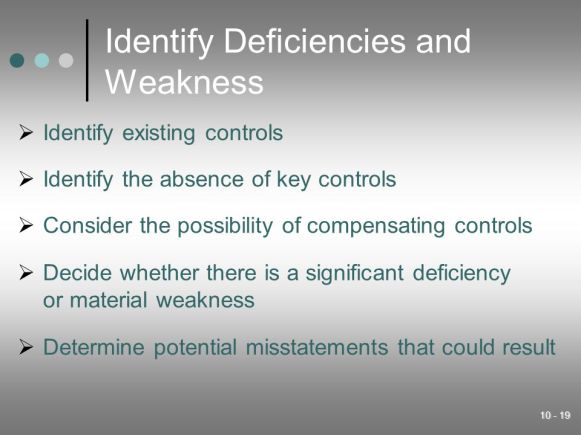
On May 24, 2018 in Palm Bay at a Special City Council meeting, Carr, Rigs and Ingram, LLC presented the Commissioners with the Comprehensive Annual Financial Report (CAFR) of the City of Palm Bay, Florida, for the fiscal year ended September 30, 2017 pursuant to Florida Statutes Section 218.39, Chapter 10.500 of the Rules of the Auditor General of the State of Florida and Section 4.05 of the City Charter.
The CAFR was shared with the public as an agenda item.
City Manager Greg Lynk was pleased in an introductory memorandum to the Councilors that “The City has once again received an unmodified opinion. An unmodified opinion represents the highest level of assurance that a city can receive from an independent certified public accounting firm.”
In addition to the financial report, in accordance with Government Auditing Standards, “we (Carr, Rigs and Ingram, LLC) have also issued our report dated May 18, 2018, on our consideration of the City of Palm Bay, Florida’s internal control over financial reporting and on our tests of its compliance with certain provisions of laws, regulations, contracts, and grant agreements and other matters. (emphasis added)
Carr, Rigs and Ingram, LLC’s report was issued May 18, 2018.
In conducting their “internal control over financial reporting,” Carr, Rigs and Ingram, LLC) cited two types of deficiencies in internal control.

A material weakness is a deficiency, or a combination of deficiencies, in internal control such that there is a reasonable possibility that a material misstatement of the entity’s financial statements will not be prevented, or detected and corrected on a timely basis.
A significant deficiency is a deficiency, or a combination of deficiencies, in internal control that is less severe than a material weakness, yet important enough to merit attention by those charged with governance.
The results Carr, Rigs and Ingram, LLC tests disclosed an instance of noncompliance or other matter that is required to be reported under Government Auditing Standards.
Here are deficiencies the public may not know about, which were buried in the back of Carr, Rigs and Ingram, LLC’s Comprehensive Annual Financial Report.
INDEPENDENT AUDITORS’ REPORT ON INTERNAL CONTROL OVER FINANCIAL REPORTING AND ON COMPLIANCE AND OTHER MATTERS BASED ON AN AUDIT OF FINANCIAL STATEMENTS PERFORMED IN ACCORDANCE WITH GOVERNMENT AUDITING STANDARDS
SUMMARY:
Internal control over financial reporting:
- Material weakness(es) identified? X yes ___ no
- Significant deficiency(ies) identified? yes X no
Noncompliance material to financial statements noted? yes X no
Federal Awards and State Projects
Internal control over major federal programs and state projects:
Material weakness(es) identified? _ X_ yes no
Significant deficiency(ies) identified? X yes no
Carr, Rigs and Ingram, LL identified a deficiencies in internal control that they considered to be a material weakness.
~ ~ ~
MATERIAL WEAKNESSES
No. 1. CRITERIA: Management needs to follow Policy Number 31.6.2 Sick Leave as approved by Council as they do not have the authority to override this policy.
Condition: An employee terminated on September 7, 2017 had been employed for less than 5 years and received a full payout of accrued sick time in the amount of $8,377. However, according to the City’s Policy Number 31.6.2 Sick Leave effective September 1, 2017, employees with less than 5 years of employment receive a 0% payout of accrued sick time.

David Isnardi resigned on September 7, 2017
Cause: The payment was processed after receiving approval from the Human Resources Director, who was not the supervisor of the terminated employee.
Effect: The employee received an improper payment of accrued sick time at termination.
Recommendation: We recommend that the City comply with their written policies and any exceptions from policies approved by Council receive approval from Council instead of management.
Management’s Response: The employee who terminated on 9/7/17 had expressed an interest in leaving prior to the implementation of the changes in sick leave payout effective 9/1/17.
The Human Resources Director in consultation with the City Manager felt the City would benefit from the employee’s continuing for the additional time. It was agreed that the pre 9/1/17 payout provision would be honored if the employee agreed to continue for the individual time. The City Manager is the responsible person to administer these Administrative Code and that the codes are not intended to restrict day-to-day procedures and to provide a written Guideline.
The exception in this case was consistent with the intent and in the best interest of the City.
The Human Resource Director did not approve the action as the employee’s supervisor but as the person with the primary responsibility, with approval of the City Manager, for the administration and day to day maintenance of the HR Admin Code.
According to Florida Today, “Under terms of his resignation, Isnardi will receive a total of nearly $30,000 in accumulated vacation time and sick leave, and “separation pay.”
~ ~ ~
No. 2. Criteria: The City is required to file quarterly HUD reports within 20 days after each quarter for the CDBG grant CFDA #14.218, and the City is required to file an annual report by September 15 to Florida Housing each year for the SHIP grant CSFA #40.901, and file quarterly reports to the Florida Department of Environmental Protection 20 days after the end of the quarter for the FDEP grant CSFA #37.039.
Condition: For the CDBG grant, CRI noted during review of all the quarterly SF-425 reports that the reports all listed award # B13-MC-12-0032, but the spending of awards was actually related to award # B14-MC-12-0032 and B15-MC-12-0032 and the reports did not segregate between awards.
One of the FDEP quarterly reports was due April 20, 2017 and was not submitted until April 26, 2017.
Furthermore, the annual close out report for SHIP was submitted after the required deadline September 30, 2017.
[Florida Housing administers the State Housing Initiatives Partnership program (SHIP), which provides funds to local governments as an incentive to create partnerships that produce and preserve affordable homeownership and multifamily housing. The program was designed to serve very low, low and moderate income families.]

Recommendation: In order to properly monitor grant projects and ensure that all grant requirements are met the City should create a position directly responsible for overseeing the grant projects.
Management’s response: Since June 2017, all required CDBG federal reporting has been submitted to HUD by deadlines.
~ ~ ~
No. 3. Criteria: The City must expend SHIP funds within 2 fiscal years of receiving the funds from the State.
Condition: CRI noted during fiscal year 2017 testing that the City had unspent funds still recorded in unearned revenue that were over 2 years old, and totaled approximately $167,000.
Cause: The City did not spend the SHIP funds within the 2 year timeframe as required by the grant as spending of the funds are not being tracked.
Effect: The City could accidentally spend funds over 2 years old that the City no longer has the right to spend, and during 2017 the City returned approximately $666,000 to the State.
Perspective: Approximately $167,000 is currently being held by the City for over two years. The City has received over the last four years approximately $450,000 to $650,000 a year.
Recommendation: We recommend that the City inquire with the State if they are allowed to keep the funds and use them past the two year allowed period or remit the funds back to the State. Going forward the City should carefully track which fiscal year funds are being spent from since funds are received from the State in advance.
Management’s response: The $167,000 identified as being held by the City represents funds that were expended and reimbursed from the SHIP fund that should have come out of the NSP Fund. The State is aware of the correction to be made once the NSP are drawdown and returned to the City.
City staff is still working with Florida Housing Coalition as a consultant to satisfy any remaining concerns raised by the State SHIP program.
The City has prepared a letter requesting extension of encumbrance and expenditure deadlines and through numerous and recent conversations with the State, anticipate a favorable response to this request for extension.
~ ~ ~
No. 4. Criteria: The City must track and document employees’ time for each pay period that an employee works directly on a grant.
Condition: CRI noted during fiscal year 2017 testing that the payroll allocations for the CDBG and SHIP grants were percent allocations all year long for all the employees that worked on the grants. Time per pay period was not tracked at a detailed level or documented. For CDBG there were 55 expenses selected relating to payroll for a total of $33,616 and for SHIP there were 95 expenses selected for a total of $60,827.
Cause: The City did not require employees to track their time per pay period by the grant projects that they worked on.
Effect: Grants could have an over or understatement of payroll allocation expenses, and there is no documentation for hours worked on a grant if a granting agency required support.
Perspective: All of the payroll expenses charged to the CDBG grants and SHIP grants are questioned costs.
Recommendation: We recommend that the City require employees that work on grants to track their hours on a timecard or in a similar format so that there is documentation for time worked on a grant for each pay period.
Management’s response: Effective June 2017, housing and community development staff prepare daily time sheets that correctly reflect time spent on each grant.
~ ~ ~
No. 5 Criteria: The City is required to verify that recipients of SHIP funding for the Homes for Warriors Program are not current homeowners prior to being approved to receive grant funding. In addition, the determination of eligibility for each applicant should be documented and reviewed by the appropriate level of management.
Questioned Costs Condition: The City relies on its non-profit partner to pre-screen applicants for the Homes for Warriors program to determine whether they are eligible. The City did not obtain support from their non-profit partner verifying the homeownership status of the recipient of grant funds. CRI noted that the eligibility of recipients of grant funding in the Homes for Warriors program is not formally documented and reviewed.
Cause: The City is not currently getting support that the verification for home ownership was completed. CRI also noted that the City does not have a formal eligibility determination form to document the performance and review and grant recipient eligibility.
Effect: Approved recipients of grant funding without proper review could result in disallowed costs or noncompliance with State regulations.
Perspective: Of the 7 applicants selected during testing, there was no support on file for 3 of the applicants.
Recommendation: We recommend that the City obtain the independent verifications that recipients of grant funding in the Homes for Warriors Program are not current homeowners before being approved. In addition, we recommend that the City implement a formal process and procedures for the documentation and review of eligibility determinations.
Management’s response: The City completed its independent research that concluded that all assisted Homes for Warriors applicants were not current or previous homeowners.
Housing and community development staff have adopted policies and procedures for treatment of all SHIP Strategy recipients that include measures to ensure that all required eligibility documentation defined in the SHIP Strategy are received before awarding SHIP funds to a recipient.
~ ~ ~
SIGNIFICANT DEFICIENCIES
No. 1. Criterion: Recipients of Federal and State grants are required to run excluded and debarred checks on SAM.gov for any vendor that receives more than $25,000 of grant money.
Condition: The City did not properly run checks on SAM.gov for 1 of the 4 required vendors prior to contracting the vendors; however, the SAM.gov checks were run after the fact and no debarred vendors were noted.
Cause: The SAM check is a step during the regular RFP procurement process; however, the City passed Ordinance 2015-31 that exempts departments from this process. When the vendors were not obtained through the purchasing department the SAM checks were not completed.
Effect: If the City does not properly run SAM checks there could potentially be disallowed costs. The City did check the expenses in question for fiscal year 2017 and no debarred vendors had been utilized.
Perspective: 1 out of 4 vendors selected did not have the suspension and debarment check performed.
Recommendation: All departments should be required to go through the procurement process, as Ordinance 2015-31 was repealed in 2017.
Management’s response: Procurement received notice of the deficiency audit comment on March 12, 2016. Procurement met with a member of the Growth Management staff shortly thereafter and walked the employee through the on-line process of checking SAMS.gov website to research and print-out the information regarding vendor inquiries. In addition (as stated in the current audit comment) – SAMS checks were done on the vendors that had not been previously researched.
A new check-sheet was created for the competitive solicitation folders that are processed through the Procurement Department. Included on the check list is a section entitled “VENDOR CHECKS”. This is a process that will be followed by Procurement Staff once the responses are received from vendors – documentation will be included in the files.
~ ~ ~
No. 2. Criteria: The City’s procurement policy requires that procurement transactions over $25,000 should have Council approval.
Condition: Expenditures exceeding $25,000 for one vendor required a formal proposal to bid prior to procuring contract. Bids were obtained and evaluated, but City Council had not approved the bid prior to the contract being executed.
Cause: The bid was not presented to the City Council for approval prior to the contract being executed
Effect: Not having Council approve the final vendor selection could result in a vendor being chosen incorrectly.
Perspective: Only one vendor reached the threshold to require a bid for the CDBG grant during 2017.
Recommendation: We recommend that the City require all departments to submit bids to the City Council for approval.
Management’s response: The City’s Procurement Code of Ordinance (Chapter 38) and Procedure Manual were updated and revised with an effective date of October 1, 2016 (formal amount is no longer $25,000 for Council approval). Procurement processes have been updated and revised based on the ABA Model Procurement Code; revisions included increases to dollar threshold amounts for procurement approval that are in line with procurement best practices. Procurements utilizing expenditures of federal funds are also compliant with OMB Circular CFR’s 200.318- 326.
All formal bid (all competitive solicitations) amounts per City Code are equivalent to or in excess of $100,000 and managed by the Procurement Department staff. All procurements and formal bids (competitive solicitations) do require Council approval; this includes cooperative purchases as well as sole-source when authorized by the funding source.
Procurements less than the formal amount are competitively solicitated by Procurement Department staff through an informal process beginning at $25,000 and approved by the Chief Procurement Officer; this includes cooperative purchases as well as sole-source when authorized by the funding source.
Other thresholds include 1-quote required up to $10,000; and 3-quotes required between $10,000 and $25,000. All require review and approval by the Chief Procurement Officer.
~ ~ ~
No. 3. Criteria: Not less than 70 percent of CDBG funds must be used over a period of 3 years for activities that benefit low- and moderate-income persons in accordance with the criteria set forth in 24 CFR sections 570.200(a)(3) and 570.208(a).
The reported expenditures for grant award # B-14-MC-12-0032 totaled $427,476 for period ending September 30, 2017 and beginning on October 1, 2014. The total expenditures over the 3 year period amount of 69.91 percent of the grant award amount of $611,459, which is less than the required 70% of funds that must be spent within the 3 year period.
Cause: There is not review of the annual reports or tracking if the funds are spent timely.
Effect: The effect of not meeting earmarking thresholds may result in potential future loss of grant funding.
Perspective: The City was .09% short of the earmarking requirement.
Recommendation: We recommend that the City track each active CDBG grant award to monitor the progress of meeting earmarking requirements.

Management’s response: As part of CDBG CAPER submission, the City is required to submit an IDIS PR26 report that indicates funds expended during the reporting period or other period as defined in the City’s CDBG Certifications.
HUD has conducted monitoring of the City’s CDBG expenditures and has not reported non-compliance with 24 CFR 570.200(a)(3).
In addition, the City approved a large Substantial Amendment to prior year CDBG funding to reallocate funds to new projects to replace previously adopted inactive projects. This Substantial Amendment may have resulted in delay in expenditures which would affect the total amount of grant funds expended and the percentage of grant funds required to meet the 70% low/moderate income benefit standard.
Staff will research this item more thoroughly and will report any corrections to the auditor’s original conclusions should they arise from this analysis.
CORRECTIVE ACTION PLAN May 18, 2018
In response to the above, the City of Palm Bay, Florida respectfully submitted the following corrective action plan for the year ended September 30, 2017.
Grant Requirements
Recommendation: In order to properly monitor grant projects and ensure that all grant requirements are met the City should create a position directly responsible for overseeing the grant projects.
Action Taken: Since June 2017, all required federal reporting has been submitted to HUD by deadlines.
IC 2015-003 Debarred and Excluded Vendors
Recommendation: All departments should be required to go through the procurement process, as Ordinance 2015-31 was repealed in 2017.
Action Taken: All departments are again required to go through the procurement process, exceptions made for the Home for Warrior program has been rescinded. Procurements utilizing expenditures of federal funds are required to go through the Procurement Department and also reviewed for compliance with OMB Circular CFR’s 200.318-326.
IC 2016-001 Expenditure of SHIP Funds
Recommendation: We recommend that the City inquire with the State if they are allowed to keep the funds and use them past the two year allowed period or remit the funds back to the State. Going forward the City should carefully track which fiscal year funds are being spent from since funds are received from the State in advance.
Action Taken: The State is aware of the correction to be made once the NSP grant funds are drawdown and returned to the City.
City staff is still working with Florida Housing Coalition as a consultant to satisfy any remaining concerns raised by the State SHIP program.
The City has prepared a letter requesting extension of encumbrance and expenditure deadlines and through numerous and recent conversations with the State, anticipate a favorable response to this request for extension.
IC 2016-002 Payroll Allocations
Recommendation: We recommend that the City require employees that work on grants to track their hours on a timecard or in a similar format so that there is documentation for time worked on a grant for each pay period.
Action Taken: Since June 2017, housing and community development staff have been preparing daily time sheets that correctly reflect time spent on each grant.
Recommendation: We recommend that the City comply with their written policies and any exceptions from policies approved by Council receive approval from Council instead of management.
Action Taken: Pursuant to Article 4.017 of the Palm Bay Charter, “the (City) Manager shall develop and keep current an administrative code for purpose of implementing ordinances passed by the council”.
The Administrative Code is not intended to restrict day-to-day procedures. They are intended to establish common understanding of respective responsibilities and duties and to promote coordination of activities of common interest. To provide a written guideline for implementing ordinances adopted by the council.
Recommendation: We recommend that the City obtain the independent verifications that recipients of grant funding in the Homes for Warriors Program are not current homeowners before being approved. In addition, we recommend that the City implement a formal process and procedures for the documentation and review of eligibility determinations.
Action Taken: The City completed its independent research that concluded that all assisted Homes for Warriors applicants were not current or previous homeowners.

You can come to your own conclusion about City Hall management.
Pingback: Did You Miss Palm Bay, FL Deputy Mayor Tres Holton Disparage Then City Deputy Attorney Patricia Denise Smith? | Vero Communiqué
Than you for informing.
LikeLike